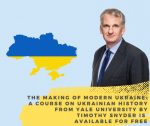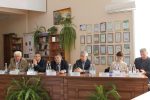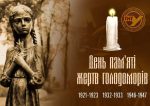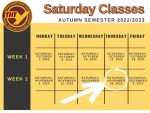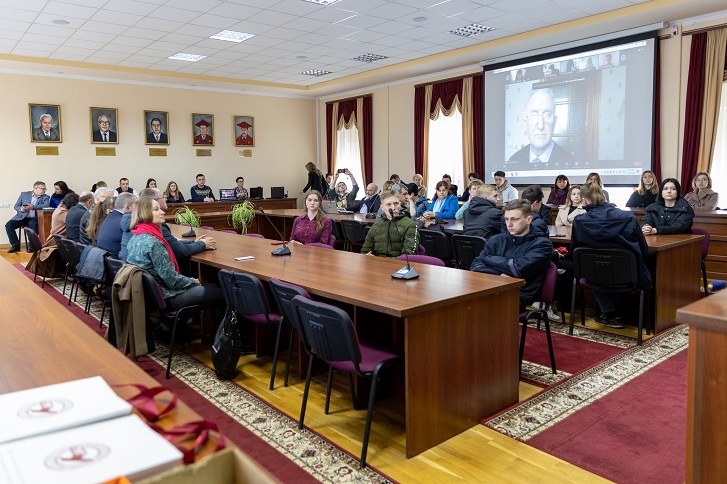
From April 20-21, the III International Scientific Conference Military Conflicts and Technogenic Disasters: Historical and Psychological Consequences took place at the Ivan Puluj Ternopil National Technical University. The conference was attended by 107 participants representing 6 foreign and 24 domestic higher educational institutions.
The conference brought together speeches by scientists and researchers from different parts of the world and covered the following directions:
Psychological and social adaptation and rehabilitation of victims of military conflicts and technogenic disasters;
History of military conflicts and technogenic disasters;
Hybrid wars: historical and psychological aspects;
Impact of military conflicts and technogenic disasters on life safety, local and global ecosystems;
The latest approaches to minimization of economic, environmental, and social consequences of military conflicts;
NATO and the EU in resolving military conflicts and eliminating the consequences of technogenic disasters.
The conference was opened with a welcoming speech by the rector of TNTU, Mykola Mytnyk. He emphasized the importance of the topic of military conflicts and technogenic disasters for scientific meetings not only in Ukraine but also for the world, especially during a time when we are in an open war with Russia. The participants were also greeted by Viktor Ustenko, the deputy head of the Ternopil Regional State
Administration, and Pavlo Marushchak, the vice-rector for scientific work at TNTU.
The plenary session was filled with extremely interesting and relevant topics.
Olga Kosharna, Ph.D. in Chemistry, an expert in nuclear energy and nuclear safety, and a member of the NGO Ukrainian Nuclear Society gave a deep analysis dedicated to russia nuclear terrorism in Ukraine and its danger to the entire world. A team of scientists led by Colonel, Ph.D. in Military Science, Associate Professor Oleksandr Voytko, representing the Center for Strategic Communications in the Field of National Security and Defense of the Ivan Chernyakhovsky National Defense University of Ukraine, actively participated in the conference. Oleh Medvedev presented a brilliant analysis of the political struggle in Ukraine regarding NATO membership from 1991-2021 and its historical consequences for national security. Ph.D. in History Maria Podybailo and Ph.D. in Law Volodymyr Polevyi also took part in the discussion.
The speech by Dr. Oleg Herman, a candidate of historical sciences, professor, and Honored Artist of Ukraine, on the challenges of victory and the time when we will be able to evaluate not only its bright sides was emotional and symbolic. In his insightful report, Dr. Volodymyr Hutsaylyuk (Military Technological Academy named after Yaroslav Dombrovsky, Poland) talked about the transformation of the European security doctrine and the Central-Eastern European region during the open war in Ukraine.
Marcos Antonio Nogueira, President of the Analytical Center Portugal-Europe Initiative (Brussels), gave an inspiring speech about Ukraine as a European border of freedom. Only Ukraine’s victory will be peace," stressed Mr. Nogueira. We are sincerely grateful to the well-known Portuguese public figure for the words of support that were voiced in his report. Major Anastasiya Okayevych presented a thorough
analysis of the formation of the emotional stability and willpower of military personnel during the psychological training of the Armed Forces of Ukraine.
We are grateful to Maya Tsvitan Grubishyn (Polytechnic Nikola Tesla, Croatia) for her speech in which the scientist shared the tragic experience of her country, which went through the Homeland War of 1991-1995 and managed to become a member of the European Union. Vitaliy Lozovyy, Ph.D. in History, Professor at the National Institute for Strategic Studies, analyzed the use of the enemy image and language of hostility as a component of the anti-Ukrainian policy of the Kremlin. The leader of the public organization Ukrainian-Croatian Cooperation White Croatia Marin Lerga focused the audience's attention on the role and place of civil society organizations in
the context of hybrid confrontation and military conflicts. Dr. Andrzej Senk, who represented the Faculty of Social Sciences at the State Vocational University in Suwalki (Poland), emphasized the importance of the European Union for the security of its member states and their societies.
The plenary session was concluded by Iryna Trubavina, Ph.D. in Pedagogy, Professor at the H.S. Skovoroda Kharkiv National
Pedagogical University, who outlined the problematic field of education in conditions of martial law in Ukraine’s educational institutions and analyzed options for its rethinking and implementation.
The continuation of the conference on April 21 also allowed for many interesting presentations to be heard.
Anatolii Filinyuk, Ph.D. in History and Professor at Ivan Ohiyenko Kamianets-Podilskyi National University shared his vision of the European and Russian models of historical memory and their reflection on the Russian-Ukrainian hybrid war.
Kateryna Akimova from the National University of Civil Defense of Ukraine presented an analysis of the catastrophic impact of the current state of war on the ecological component of Ukraine in various regions, while Victoria Bodnar, a student of BP-21 group at Ivan Puluj National Technical University under the guidance of Candidate of Historical Sciences, Associate Professor Halyna Shchyhelska, presented an interesting study on the Illusion of Truth as a psychological technique in the Russian-Ukrainian war.
Tamara Chop, an assistant professor at the Department of Information Activity and Social Sciences at Ivan Puluj National Technical University, outlined the existing experience of overcoming gender stereotypes regarding women in the military sphere.
Candidate of Historical Sciences, Associate Professor Oksana Potikha shared shocking facts about the lives of Ukrainian children in temporarily occupied territories of Ukraine.
Maxym Yanus, a student of MP-11 at Ivan Puluj National Technical University (supervised by Candidate of Historical Sciences Herman O.), spoke about the psychological and social adaptation of those affected by military conflicts and technological disasters.
In the concluding report, the head of the Department of Information Activity and Social Sciences at Ivan Puluj National Technical University, Dr. of Historical Sciences, Associate Professor Andrii Kryskov, presented his research on losses of cargo vehicles in the Russian-Ukrainian war based on data from the oryxspioenkop.com website.
We are incredibly grateful to all those who took the time to share their research with us and all conference participants in this difficult time. Thank you to all who spoke and supported. See you at the next conference in independent and free Ukraine!
Glory to Ukraine! Glory to Heroes!
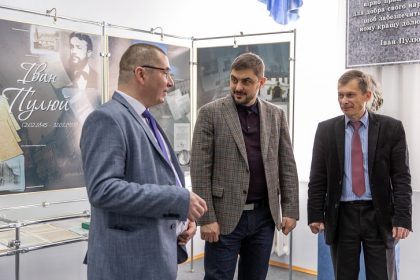
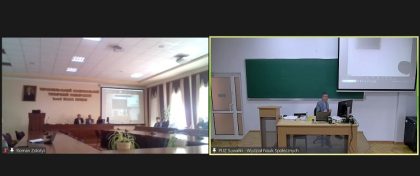
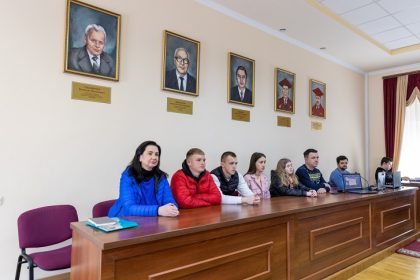
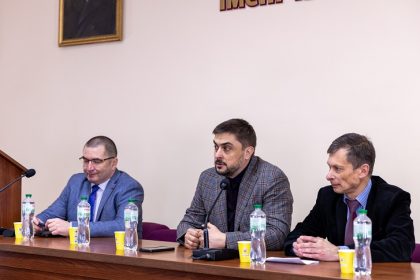
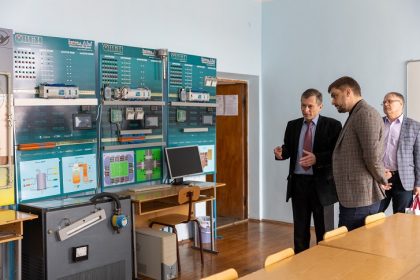
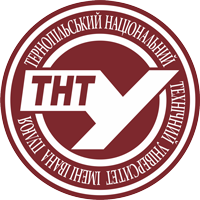
 Member of European University Association
Member of European University Association
